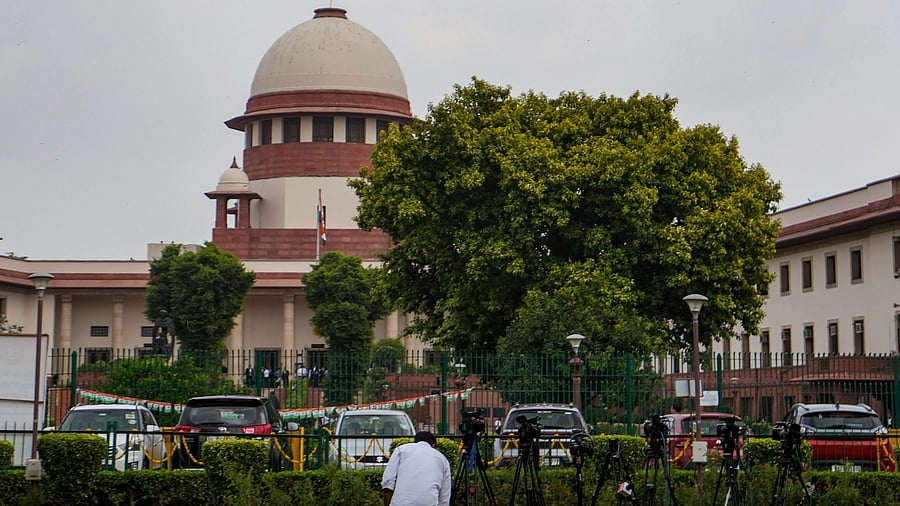
The Supreme Court of India
Credit: PTI File Photo
India’s Supreme Court has faced relentless criticism over the “too many” vacations its judges take. It is a grievance that resurfaces every summer, every winter, and every recess, and is voiced by citizens and others who see ‘vacation’ as leisure time in a country where courts are burdened by millions of pending cases. The Supreme Court and the High Courts work under conditions that are vastly different from those of other jurisdictions. The Supreme Court of India sits far more days in a year than most of its global counterparts. The United States Supreme Court will sit only for 65 days in 2025. The Supreme Court of the United Kingdom, operating on a term system, will sit for 188 days. The Apex Court of Australia will sit for 97 days. In contrast, the Supreme Court of India sits for 190 working days in 2025, despite its vacations.
To understand why these breaks exist, one has to look at what happens outside the courtroom. The work of a judge is not limited to the hours that are spent hearing lawyers. Between those hearings lie hours of reading, writing, revising, and reflecting. A judgement is not produced in a vacuum; it is the outcome of days of deliberation, research, and often disagreement. ‘Vacation’, therefore, is not rest in the leisurely sense of the word; it is time reclaimed for writing, for completing reserved judgements, and for catching up on the intellectual labour that justice demands.
The burden on the Supreme Court is unlike that of any other top court. It is both a constitutional court and an appellate court, simultaneously handling questions of national importance and appeals from across the country. Tens of thousands of petitions are filed every year; judges navigate a caseload that would overwhelm any comparable institution in the world.
A judge who is exhausted by relentless hearings risks losing the detachment and patience that fair adjudication requires. The Constitution of India does not ask judges to be machines; it asks them to be wise. Wisdom takes time: time to read, to think, to listen, to write. There is also a human truth here. The same people who demand that judges sit through the year also demand that their judgements be thorough, well-reasoned, and free of error. But the latter depends on the former. To expect precision without pause is to mistake justice for automation.
Discipline for better judgement
The backlog of cases in the country runs into crores; the Court simply working 365 days will not help this cause. But the real cause of pendency lies deeper, in procedural delays and an over-centralised litigation system where the government remains the largest litigant. The Supreme Court’s calendar cannot repair what decades of administrative inertia have built. Vacations are the easiest scapegoat because they are visible; the structural inefficiencies that truly slow down justice are not.
It is also worth remembering that the Supreme Court has evolved. Over the years, it has made adjustments in the form of partial working days during the summer, vacation benches earmarked for urgent matters, electronic filings, and more. Perhaps, what we need most is a shift in the way we think about judicial work. We speak of open court hours as though that is the only time judges serve. But just as teaching is not confined to the classroom, judging is not confined to the bench. Every line in a judgement, every precedent checked, every argument weighed, and hours of research and proofreading which go in – all of this happens beyond the public eye. In that sense, the so-called ‘vacation’ is merely the invisible half of the same labour.
The judges of the Supreme Court carry a heavier cognitive and moral burden than perhaps any other public servants. They interpret the Constitution, settle conflicts between the Union and the states, define the contours of liberty, and occasionally, as history shows, rescue democracy itself. If they take a few weeks a year to recharge, deliberate, and write, it is not a privilege; it is prudence.
We should remind ourselves that the Supreme Court’s vacations are not a dereliction of duty but an integral part of judicial discipline. The quality of its judgements, the depth of its reasoning, and the continuity of its integrity depend on that balance between hearing and reflection. In defending the Supreme Court, it is not defending privilege; it is defending perspective.
(The writer has been a law researcher at the High Court of Delhi, and currently practises at the Supreme Court of India)